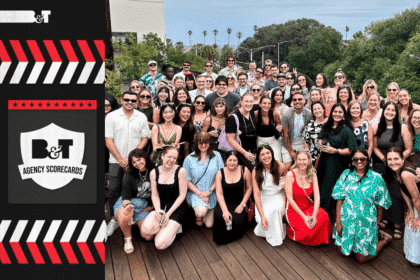With yesterday’s court case in Sydney forcing internet service providers to divulge the names of customers who allegedly downloaded the film Dallas Buyers Club without paying for it, there’s undoubtedly some nervous local film fans sweating the decision today.
Not only have fines as high as $US7000 been bandied about for people who pinched the Academy Award-winning flick, it needs to be asked what does the ruling mean for the rest of us who may have accidentally forgotten to pay for that film, TV show or game we sourced via the internet?
And if you’re an iiNet, Internode, Dodo or Adam internet customer will you have to spend the next six months hiding in a cupboard and being scared of the postman delivering you a monster fine?
In yesterday’s case the judge ruled that iiNet had to reveal the details of customers – some 4700 of them – who allegedly downloaded the film. This information can now be given to the film’s producers, a company called Voltage Pictures in the US.
https://www.youtube.com/watch?v=cC6mv0KhOBY
According to Erin Turner from the consumer advocacy group Choice, Voltage Pictures have a history of this sort of activity in other countries – US, the UK and Denmark to name a few. They use the courts to divulge the details of people who’ve downloaded its films and then send them a big nasty fine in the mail. A practise known as speculative invoicing.
According to Nic Healey, a Sydney-based senior editor with tech news site CNET, the best thing to come from yesterday’s decision was that any letters or fines the film’s producers propose to send out to people it suspects of downloading the film would have to go through the Australian courts first.
“The good news out of all this is that the 4762 IP addresses that Dallas Buyers Club now has access to, what the court has done has insist that any letters that are going to individuals or families or whoever they are going to be checked by the court first. The big concern is that Dallas Buyers Club might indulge in speculative invoicing where they send a letter that sort of says ‘pay us five grand and we won’t take you to court’.
“But the Australian court is insisting that there is genuine contact and not a speculative one. The problem here is that nobody knows what will happen when this letter arrives because we’ve never been in this situation before in Australia,” he said.
So you’re an iiNet customer and you nicked the film, what’s next?
Choice’s Erin Turner’s advice is certainly not to panic. “The case isn’t settled yet and iiNet still has 28 days to challenge the ruling. What is likely to happen is that the people behind The Dallas Buyers Club will get the details of the alleged downloaders. But the problem here is just because your name’s on the account it doesn’t mean you’re the one that actually downloaded the film. How do you find the person if it happened in a share house, for example?
“What will happen? I don’t think anybody really knows. It’s uncharted territory in Australia where a rights holder has taken action against someone who has pirated a TV show or movie. I think the problem here is that the copyright act in Australia leaves consumers with little protection. It was written in the 60s and has only recently acknowledged that people tape movies from TV on their VCRs.”
Turner says if you do receive any correspondence it’s best to get legal advice and her organisation, Choice, can certainly lend a hand.
“This company has a real dodgy history of doing this, of sending out speculative invoices. These letters are legal extortion and thankfully the judge (on the Australian case) is aware of this and does not want to see that happen here. They want to stamp out speculative invoicing; this idea of demanding money before proving guilt.
“The laws in this country are all wrong if someone illegally downloads a $15 movie and then is liable for thousands of dollars in fines for doing so,” she said.
Arguably, the bigger worry is yesterday’s ruling sets some sort of legal precedent and any person that’s ever poached something online could be held to a similar accountability and equally hefty fines.
Nic Healey agreed: “I think it will make people very, very nervous. How will it pan out? I don’t think anybody knows for sure because we don’t know what will happen once these letters arrive. Yes, this is a big case and it’s giving these people access to peoples’ data. From here we just don’t know what the next steps will be and it will be every interesting how this all plays out.”
Adding further spice to the debate, Turner cites a Choice study from 2014 that found a third of Australians had pirated something online.
“Why do people do it? It’s usually because of cost and timeliness,” she said. “We know that 55 per cent of Australians actually look to buy what they want first – be that in a store or online – and when they can’t find it then they turn to piracy. It doesn’t excuse it but it does explain it.”








